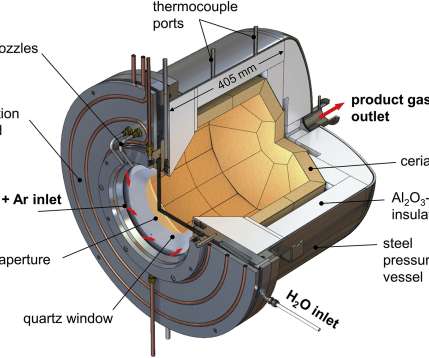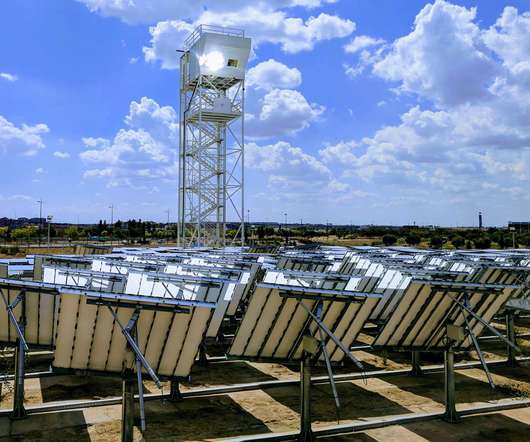All-in-one solar-powered tower makes carbon-neutral kerosene in the field at pilot-scale
Green Car Congress
JULY 21, 2022
Researchers in Europe led by a team from ETH Zurich have designed a fuel production system that uses water, CO 2 , and sunlight to produce aviation fuel. We are the first to demonstrate the entire thermochemical process chain from water and CO 2 to kerosene in a fully-integrated solar tower system. Zoller et al.

















Let's personalize your content